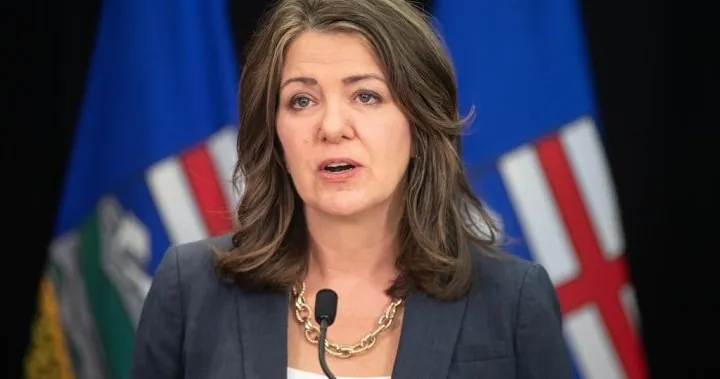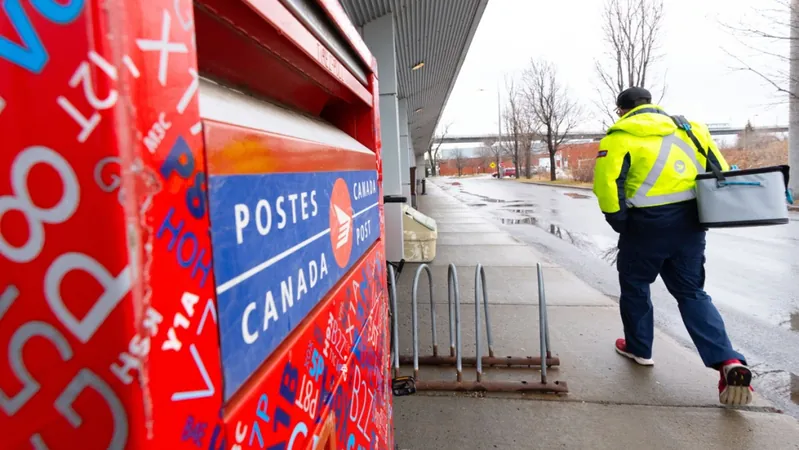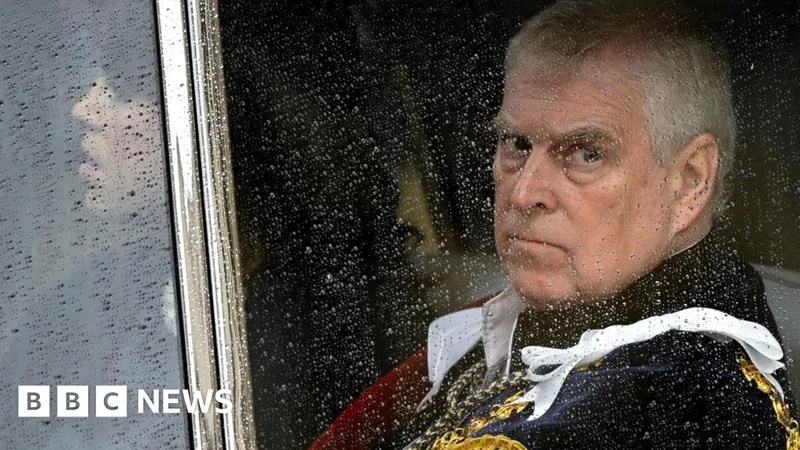
Alberta Premier Danielle Smith Considers Controversial Use of Notwithstanding Clause for Transgender Health Bill
2024-12-16
Author: Emily
Overview of the Controversy
Alberta Premier Danielle Smith has stirred controversy by expressing her willingness to invoke the notwithstanding clause to preserve her government's transgender health restrictions, stating it is a viable option as a 'last resort.' This comes in the wake of proposed legislation that aims to prevent doctors from administering gender-affirming treatments like puberty blockers and hormone therapy to individuals under the age of 16. Currently, a ban on gender-affirming 'top' surgeries for minors is already in place.
Smith's Commitment to Children's Rights
During a recent broadcast of her radio call-in show, Smith emphasized her commitment to protecting children's fertility rights, asserting, 'Because I feel so strongly about protecting kids’ right to preserve their fertility until they’re adults, we would, as a last resort, have to use the notwithstanding clause.' She added, 'I hope it doesn’t come to that, but for sure, we would.'
Concerns Over Legislative Caution
Smith expressed her concerns that invoking the notwithstanding clause might imply that lawmakers have not exercised enough caution in crafting the legislation, stating, 'We feel we've been very careful in our law crafting.' Previously, Smith had chosen not to commit to the idea of using the clause and had instead expressed confidence that the bill would stand up to any challenges in court.
Legal Pushback from Advocacy Groups
The legislation has already faced legal pushback from LGBTQ2 advocacy organizations, including Egale Canada and the Skipping Stone Foundation, along with five families who are contesting the law's constitutionality in court. Bennett Jensen, legal director at Egale Canada, has announced plans to seek an injunction that would continue to safeguard young people's access to healthcare while the legal battle unfolds.
Charter Rights at Stake
Court documents filed by the advocacy groups argue that the new health law infringes on several Charter rights, including the Section 7 right to security of the person, the Section 12 right to freedom from cruel and unusual treatment, and the Section 15 right to equality. Legal representatives from both sides are set to appear in Alberta's Court of King's Bench for the first time on Monday in Calgary to discuss procedural steps in the ongoing case.
Wider Legislative Agenda
As part of a wider legislative agenda that targets transgender individuals, the health bill is the first of three such measures progressing through the Alberta legislature. Another proposed education bill seeks to mandate parental consent for children under 16 wishing to change their names or pronouns at school. This follows a similar law enacted in Saskatchewan, where the notwithstanding clause was invoked last year. Additionally, a third bill aims to prevent transgender women from competing in female amateur sports, requiring that eligibility complaints be reported to the government.
Concerns Over Impact on Transgender Youth
Jensen expressed concern over the potential damage these bills could cause to transgender children and athletes, contesting Smith's argument that banning puberty blockers protects youth from making irreversible life decisions. 'Puberty blockers do exactly what she is claiming to be wanting to protect for young people, which is afford them time and prevent irreversible changes,' he pointed out.
Ongoing Political and Social Tensions
As the legal challenges unfold, the province remains on the brink of significant political and social contention surrounding the rights of transgender individuals and healthcare access for minors.









 Brasil (PT)
Brasil (PT)
 Canada (EN)
Canada (EN)
 Chile (ES)
Chile (ES)
 España (ES)
España (ES)
 France (FR)
France (FR)
 Hong Kong (EN)
Hong Kong (EN)
 Italia (IT)
Italia (IT)
 日本 (JA)
日本 (JA)
 Magyarország (HU)
Magyarország (HU)
 Norge (NO)
Norge (NO)
 Polska (PL)
Polska (PL)
 Schweiz (DE)
Schweiz (DE)
 Singapore (EN)
Singapore (EN)
 Sverige (SV)
Sverige (SV)
 Suomi (FI)
Suomi (FI)
 Türkiye (TR)
Türkiye (TR)